7. In the Mood for Love (2000)
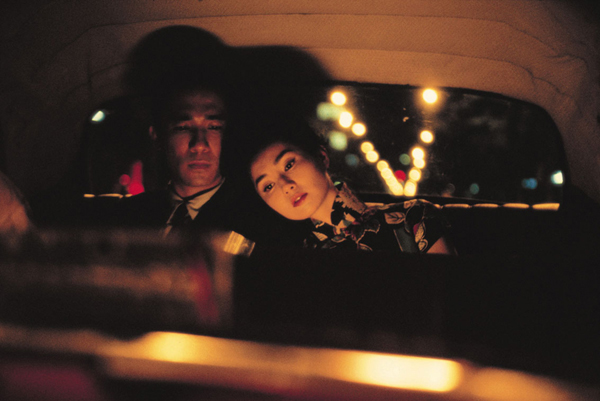
Arguably Wong Kar-wai’s plat du jour, In the Mood for Love is a luminous, reserved, slowly simmering romance. Set in a tenement house in Hong Kong during the 1960s Maggie Cheung and Tony Leung shimmer as Su Li-zhen and Chow Mo-wan as neighbors who believe their respective spouses are having an affair.
A painful poetry and sad resignation haunt the pair of potential sweethearts, elegantly framed by superstar cinematographer Christopher Doyle, Wong’s frequent collaborator. Numerous times the camera seems to pry, eavesdropping almost, on the star-crossed couple and their resisted romance.
The period details are perfect and never perfunctory—the cheong-san dresses adorned by Su Li-zhen are heart-stirring in detail and design—the color saturation and play of light is heavenly and mnemonic as is the use of music which conveys and captures an unfeigned nostalgia.
6. Carol (2015)
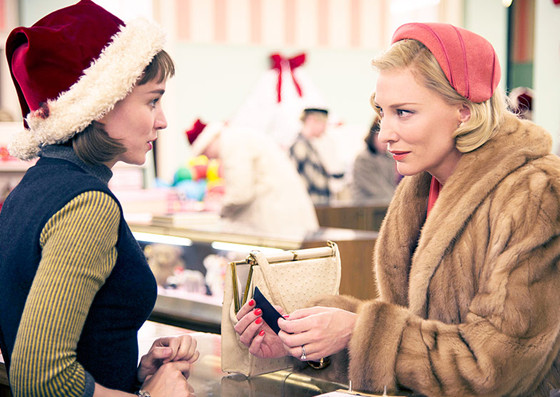
Adapted from Patricia Highsmith’s (Strangers on a Train) 1952 novel, The Price of Salt, and functioning as a sort of companion piece to director Todd Haynes 2002 film, Far From Heaven, Carol is an elegant and restrained lesbian love story for the ages.
Set in a post-war early-50s New York, the beating heart of Carol are the two formidable leads, Cate Blanchett (Blue Jasmine) and Rooney Mara (Ain’t Them Bodies Saints). Carol Aird (Blanchett) may be a wealthy yet long suffering housewife, she still manages to be a scorching full-on screen-siren who recalls Dietrich or Garbo, all glamor and gravitation.
Then there’s Therese Belivet (Mara), timid and tenderhearted, maybe even thin skinned, and the two of them, once smitten, are societal outcasts, vulnerable to assail and misunderstanding.
Haynes is stylish as ever, here tapping into some of the Old Hollywood éclat, making a postmodern melodrama that’s more than pastiche and is destined to win awards. An elegant, deliberate and poignant film, Carol ranks with Haynes finest work, an intoxicating and vibrant story of love and lament. A modern classic.
5. The Umbrellas of Cherbourg (1964)
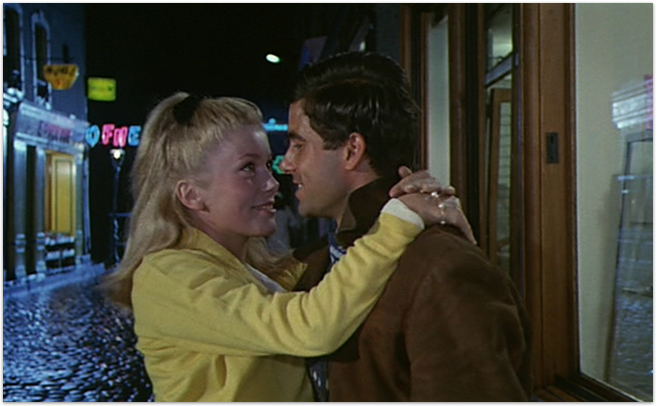
There really isn’t another movie like The Umbrellas of Cherbourg, Jacques Demy’s 1964 operetta masterpiece. A simple story of love unfulfilled, yes, it also introduced Catherine Deneuve (Belle de Jour) to the world.
Young lovers Geneviève (Deneuve) and Guy (Nino Castelnuovo) have their whole lives ahead of them. Geneviève lives with her mother and helps her run an umbrella shop. Guy is a mechanic who lives with his ailing aunt. The year is 1957 and the two lovers have plans to marry. Guy is drafted to fight in the Algerian war, an event that pulls the two apart indefinitely. It’s a simple story of love unfulfilled, told effectively in a three part structure with every line of dialogue sung like you might find in an opera.
“Jacques Demy’s movies are soaringly lyrical and romantic, but they always have extremely sharp edges and undertones – often bittersweet, sometimes just bitter,” raved Martin Scorsese. “The effect is stunning: Between the color and the music, every place and every object seem to vibrate with emotion.”
The Umbrellas of Cherbourg will break your heart in the most beautiful way you can imagine.
4. Casablanca (1942)

Few films are as beloved, as quoted, or as emblematic of Hollywood as Michael Curitz iconic romantic adventure film Casablanca.
Humphrey Bogart and Ingrid Bergman trade love and the promise of happiness for nobility—though they’ll “always have Paris”—in the titular Moroccan desert city during Word War II.
Rick Blaine (Bogey) owns and runs the Café Américan, a gin joint like no other, where one night in walks Ilsa Lund (Bergman), his old flame, now newly wed to Resistance fighter Victor Laszlo (Paul Henreid).
The innuendo-infused love triangle is but one of many pleasures in viewing Casablanca, a legendary production with an incredible cast, memorable music, a whip smart script, assured direction and a veritable parade of unforgettable sequences and set pieces. It’s an undisputed classic which has aged far better than so many of its peers. “Here’s looking at you, kid.”
3. Jules et Jim (1961)
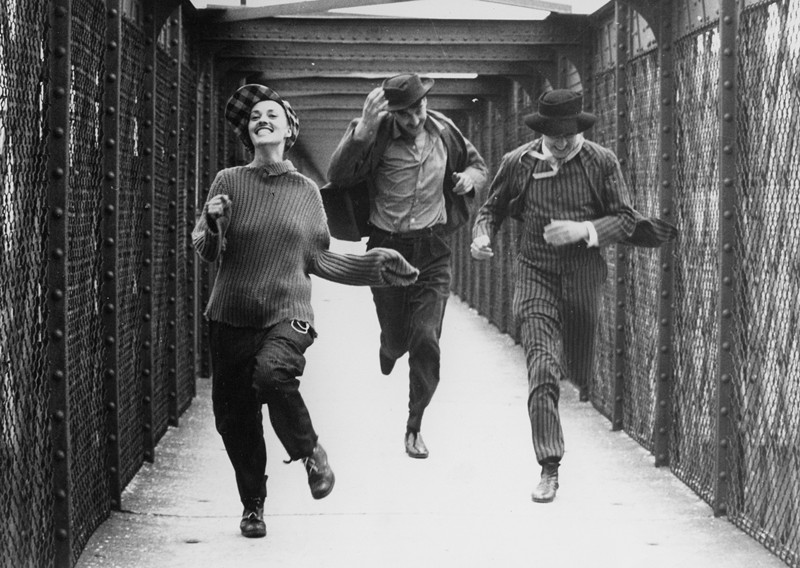
A bittersweet experience of lasting intensity, François Truffaut’s regret tinged showpiece, Jules et Jim, is anything but atypical in its telling of boy meets girl meets boy. A period romance rich in sweet, stinging sadness as Catherine (Jeanne Moreau) romances and ravages Jules (Oskar Werner) and Jim (Henri Serre), Jules et Jim was met with a 15-minute standing ovation at its premiere, this is Truffaut’s best-loved film for a reason, and perhaps no other film best captures the spirit of the French New Wave.
Adapted from Henri-Pierre Roché beloved semi-autobiographical novel from 1953, Jules et Jim, this lightning-paced foray into doomed love and exquisite sadness is a charming and influential film of giddy romance run amok. The spirited and extensive narration, which inspired Scorsese’s Goodfellas, amongst other modern works, was light years ahead of its time, as were the stylish freeze frames, jump cuts, and taboo-smashing ménage à trois/love triangle scenario.
Sure, certain aspects of the film may not have aged perfectly well, some of what made Jules et Jim such a groundbreaking pièce de résistance may not be readily apparent to modern audiences, but the film still carries a fresh and sunny élan, a buoyancy and fire as infectious today as it ever was. And the performances hold strong in this delicious and gratifying tour de force.
2. Annie Hall (1977)
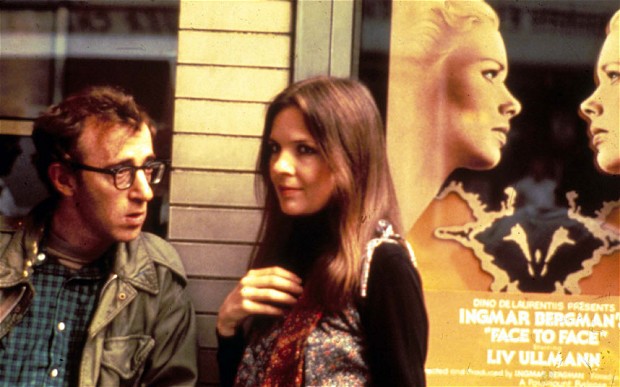
Extolling love while simultaneously pushing it away, Woody Allen, with Annie Hall, made the template that all romantic comedies would aspire to afterwards. Certainly sentimental, Annie Hall is also bleak, meta, moving, complex, and artful. It’s the perfect distillation of Allen’s work as a writer, director, and actor, and his muse, Diane Keaton, gives one of the great comedic performances of all time.
Certainly the film Allen and Keaton will be most remembered by, Annie Hall was something of a phenomenon when it was initially released and it remains one of the most quotable and highly valued American films of the 1970s.
Alvy Singer (Allen) and Annie Hall (Keaton) fall in love, have many ups and downs, and ultimately part company – no spoilers here, this is all revealed in the opening monologue of the film – and yet their story is universal, the avant garde approach Allen takes in delivering it is alternatingly humbling and hilarious. For me, this is cinematic comfort food, as well as an exuberant and introspective standard of the genre. Unmissable and essential cinema right here.
1. Brief Encounter (1945)
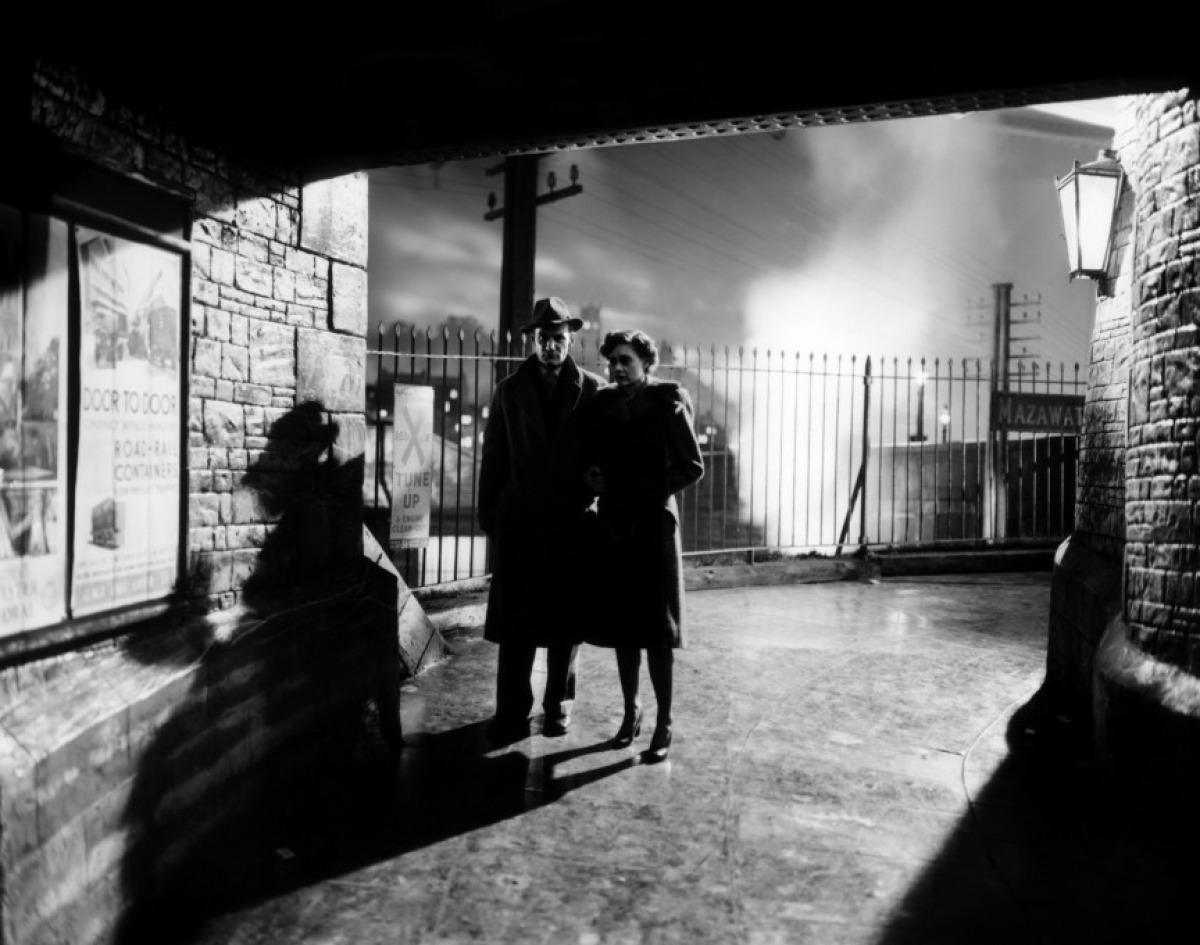
On the one hand ‘s Brief Encounter is a textbook example of unrequited love writ large on the silver screen, but such description devalues the nuance, mystery, and competency at the core of this deeply moving work, or at least underestimates the sweep and scope of this masterful melodrama, which corks this list for a reason.
Directed with considerable restraint from David Lean (Doctor Zhivago), and written elegiacally by Noël Coward, Brief Encounter presents Laura Jesson (Celia Johnson), a happily married housewife and mother, whose love life starts to compound after a chance meeting at a railway station with Dr. Alec Harvey (Trevor Howard) threatens to make her domestic bliss come crashing down. Their unconsummated love affair is an emotionally arduous and poignant tragedy, painfully credible and wholly impassioned.
Tragic romance rarely reaches such unsteady and slippery a summit as this, certainly the gold standard of such cinematic expression and unbridled emotionally honesty. A single viewing of Brief Encounter will be remembered for a lifetime. A lamentable love song, if Brief Encounter isn’t considered a classic then the word holds no meaning.
Author Bio: Shane Scott-Travis is a film critic, screenwriter, comic book author/illustrator and cineaste. Currently residing in Vancouver, Canada, Shane can often be found at the cinema, the dog park, or off in a corner someplace, paraphrasing Groucho Marx. Follow Shane on Twitter @ShaneScottravis.